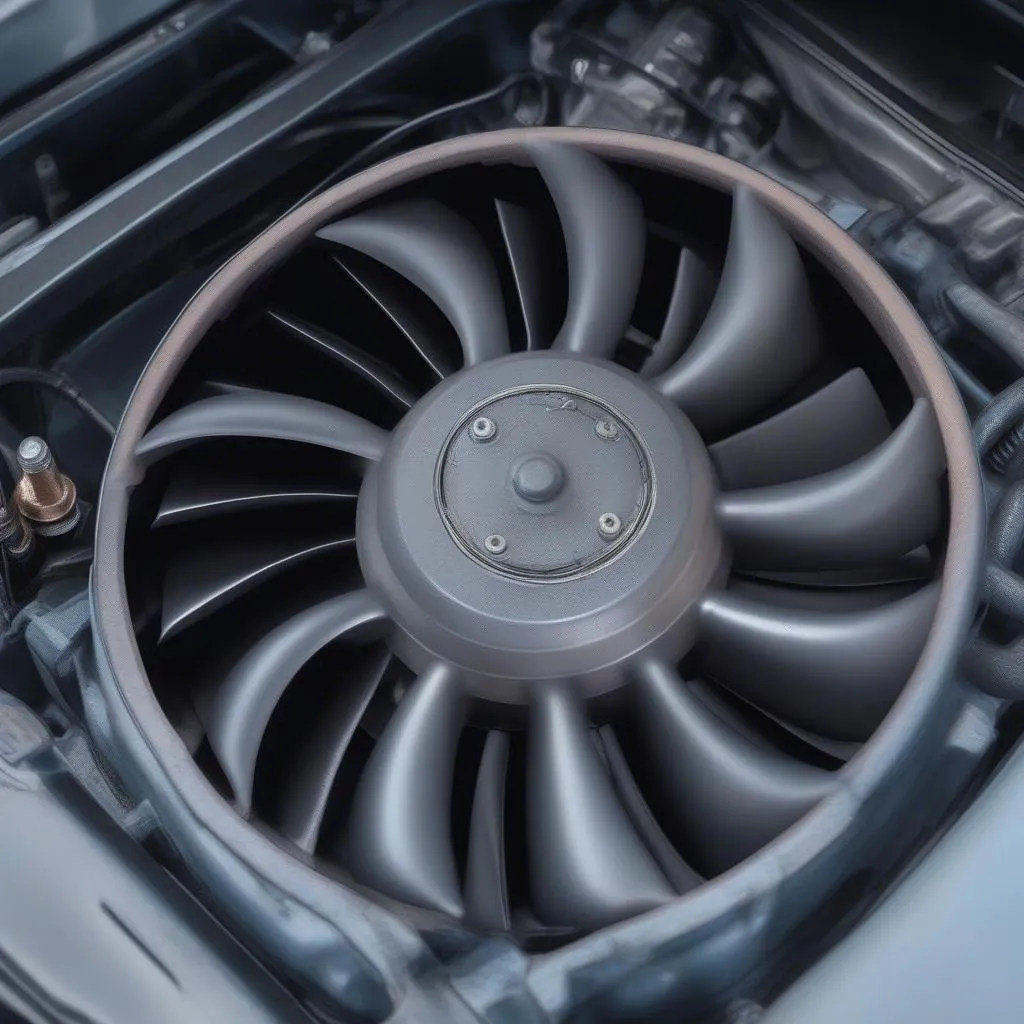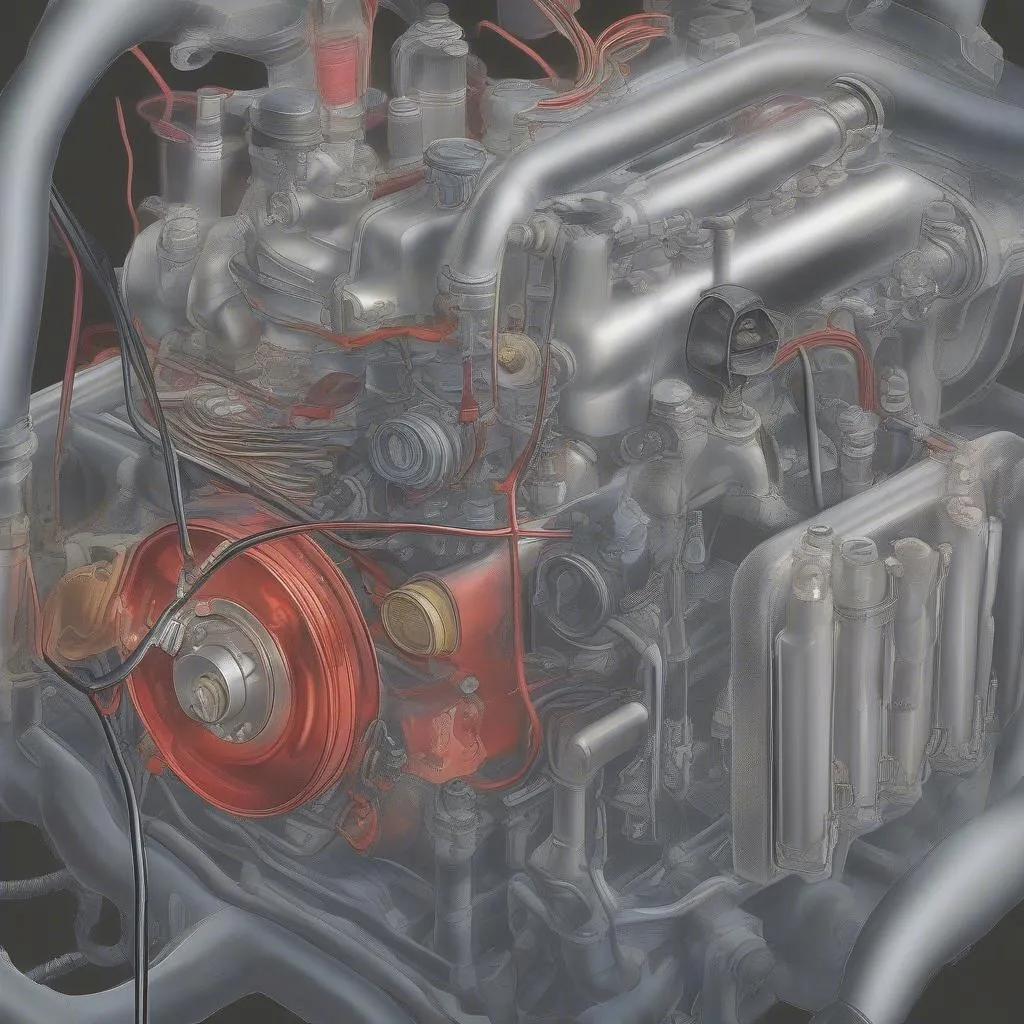Have you ever turned off your car, only to be greeted by a strange buzzing sound? You know the one – that faint, persistent hum that seems to emanate from under the hood. It can be a little unnerving, especially if you’re used to the sweet sound of silence after a long drive.
You might be thinking, “What in the world is that noise?” You’re not alone. Many car owners experience this, and it can be a sign of several things, some harmless and others needing a little attention. Let’s dive into the potential causes of that mysterious buzzing noise after you turn off your car.
Understanding the “Buzz”
The “Buzzing Noise After Turning Car Off” phenomenon is a common concern for car owners. From a mechanic’s perspective, it could indicate a range of issues from minor electrical glitches to components working overtime.
Technically, the noise is often linked to electrical systems still active even after the ignition is off. Imagine these systems like diligent workers finishing their tasks even after the boss has left for the day.
But what does it mean for your wallet? While some causes are inexpensive fixes, others might point to problems requiring professional help. It’s always better to address any unusual car behavior sooner rather than later to prevent potential costly repairs down the road.
Decoding the Buzz: Common Culprits
Here are some of the most common reasons you might be hearing that buzz, along with some real-world scenarios:
1. Fuel Pump Priming
- The Scenario: Imagine you’re fueling up your Ford F-150 in Dallas, Texas, for a road trip. You finish, turn off the engine, and hear a brief buzzing.
- The Explanation: This is often your fuel pump “priming” – getting ready to send fuel to the engine for the next start. It’s a perfectly normal sound and usually lasts only a few seconds.
2. Electric Cooling Fans
- The Scenario: You’ve just parked your BMW 3 Series after a spirited drive along California’s Pacific Coast Highway. As you turn off the ignition, you notice a fan running and a buzzing sound.
- The Explanation: Modern cars often have electric cooling fans that can stay on for a short period after you turn off the engine. This helps cool down a hot engine and is especially common in warmer climates.
 car_cooling_fan
car_cooling_fan
3. Electrical Components Winding Down
- The Scenario: You’re parked on a quiet street in New York City, and as you turn off your Toyota Camry, you hear a faint buzz from under the dashboard.
- The Explanation: Various electrical components, like the radio, power windows, or even the engine control unit (ECU), might still be active for a short time after the engine is off. This is normal, and the buzzing should cease shortly.
4. Faulty Relays
- The Scenario: You’re driving your Audi A4 in Chicago, and you notice the buzzing sound seems to be getting louder and longer each time you turn off the car.
- The Explanation: A relay is like an electrical switch. A failing relay can get “stuck,” causing a component to stay on and create that annoying buzz.
5. Fuel System Issues
- The Scenario: You’re driving a classic Chevrolet Corvette on Route 66, and the buzzing sound after you turn off the engine is accompanied by a slight gasoline smell.
- The Explanation: While less common, a buzzing noise combined with a fuel odor could indicate a fuel system problem, like a leak or a malfunctioning fuel pressure regulator. It’s essential to address this issue promptly.
 car_fuel_system
car_fuel_system
Troubleshooting the Buzz
Here’s a quick guide to help you figure out if the buzzing is something to be concerned about:
- How Long Does It Last? A few seconds of buzzing is usually normal. Anything longer than 30 seconds warrants further investigation.
- Is It Getting Louder or More Frequent? A progressively louder or more frequent buzzing noise could signal a component is failing.
- Are There Other Symptoms? Pay attention to any unusual smells, warning lights on your dashboard, or performance issues accompanying the buzzing sound.
When to Seek Professional Help
If the buzzing noise worries you, or if you notice any of the following, it’s best to consult a qualified mechanic:
- The buzzing persists for an extended period.
- It’s accompanied by other symptoms like warning lights or performance issues.
- You suspect a fuel system problem.
“Any unusual noise should be investigated,” advises automotive expert Dr. Emily Carter, author of “The Complete Guide to Automotive Electrical Systems.” “Early detection can often prevent a small problem from turning into a major repair.”
FAQs: Buzzing Noise After Turning Off Car
Q: Can a bad battery cause a buzzing noise after turning off the car?
A: While a failing battery can cause various electrical gremlins, it’s unlikely to be the direct cause of a buzzing noise after you turn off the engine.
Q: Is it bad to immediately turn off my car after driving?
A: In most modern cars, it’s perfectly fine. However, if you’ve been driving hard or in hot weather, letting the engine idle for a minute or two can help cool down components.
Q: Can I prevent this buzzing noise?
A: Many causes of buzzing are normal operating sounds. However, regular car maintenance can help prevent some issues, like failing relays.
Related Car Sounds and Issues
Interested in learning more about your car’s quirky sounds? Check out these other articles:
- Clicking Noise When Starting Your Car
- Squealing Brakes: Causes and Solutions
- Why Is My Car Making a Grinding Noise?
Need Help with Your Car’s Electrical Mysteries?
Is that buzzing noise keeping you up at night? Our team of expert auto technicians is here to help! Contact us on WhatsApp at +84767531508 for 24/7 support and expert advice on all things automotive, from diagnostics to repairs.
Remember, a little knowledge can go a long way in keeping your car running smoothly and silently.